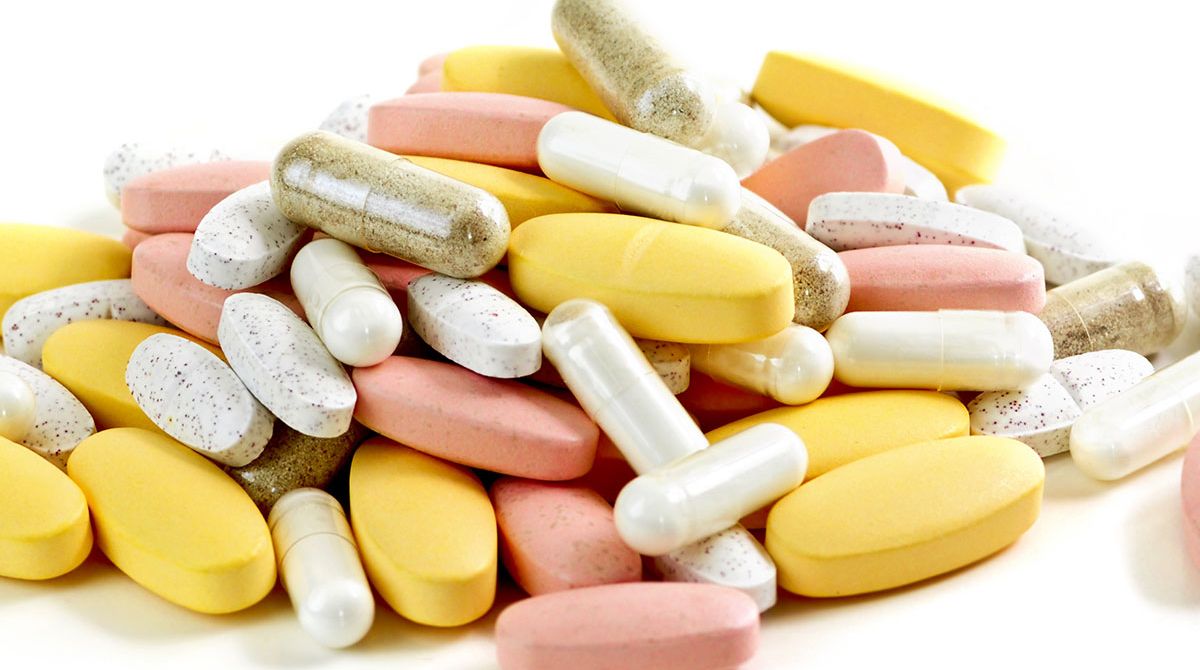Dangerous ingredients rife in health food supplements, according to research by Kingston University biomolecular scientist
Posted Wednesday 8 February 2017
 Photo credit: Business Images/REX/Shutterstock
Photo credit: Business Images/REX/Shutterstock
People taking herbal and sports supplements could be risking their lives as many contain hidden pharmaceutical ingredients that could pose serious health threats, according to a biomolecular scientist from Kingston University.
Professor Declan Naughton, from the University's Faculty of Science, Engineering and Computing, worked with a team of experts from Queen's University Belfast and science testing company LGC to investigate the detection of illegal ingredients in food supplements. "We found many products claiming to be herbal in fact contained unlicensed pharmaceutical ingredients that were not listed on the label," Professor Naughton explained. "People are taking supplements they presume are safe and healthy, but they are unknowingly taking huge risks if these products contain substances they are not supposed to."
 Professor Declan Naughton is a biomolecular scientist at Kingston University.Professor Naughton said the research showed one of the most common ingredients contaminating supplements was Dimethylamylamine (DMAA). DMAA is potentially lethal amphetamine-like substance that was linked to the death of a runner at last year's London Marathon and is used by some gym goers as a pre-workout stimulant.
Professor Declan Naughton is a biomolecular scientist at Kingston University.Professor Naughton said the research showed one of the most common ingredients contaminating supplements was Dimethylamylamine (DMAA). DMAA is potentially lethal amphetamine-like substance that was linked to the death of a runner at last year's London Marathon and is used by some gym goers as a pre-workout stimulant.
The Medicines and Healthcare products Regulatory Agency (MHRA) are so concerned about the growing use of DMAA in supplements they recently launched a campaign targeted at weightlifters, body builders and other fitness fanatics to improve awareness of unlicensed medicines containing the potentially dangerous ingredient.
The team analysed information from the European Food Safety Authority's Comprehensive European Food Consumption Database to identify the most common substances contaminating products.
Professor Naughton said scientists who analyse supplements for purity have limited resources and so rely on intelligence about current trends in supplement contamination to ensure effective testing. "The approach needs to be intelligence-led if analysts are to have any chance of effectively detecting illegal ingredients," Professor Naughton explained. "They need to know what is likely to be there and what they should spend their time and money looking for. This is very important to ensure effective testing strategies and help keep the public safe."
The study also found that many over-the-counter supplements - including those commonly advertised to treat obesity and erectile dysfunction problems - are labelled as fully herbal but often include potentially dangerous pharmaceutical ingredients, which are not listed on the label.
The research raises serious questions about the safety of slimming supplements containing Sibutramine. Sibutramine was licensed as the medicine Reductil until 2010, when it was withdrawn across Europe and the United States due to an increased risk of heart attacks and strokes associated with the use of the drug.
Tadalfil and sulfoaildenafil were among the most frequently undeclared ingredients in products for erectile dysfunction. When taken with other medicines containing nitrates, they can lower blood pressure drastically and cause serious health problems.
Professor Duncan Burns from Queen's University Belfast said these products were unlicensed medicines and many people were consuming large quantities without knowing the interactions with other supplements or medicines they may be taking. "This is a real issue as people suffering from conditions like diabetes, hyperlipidemia and hypertension are frequently prescribed nitrate containing medicines. If they are also taking a herbal supplement to treat erectile dysfunction, they could become very ill," Professor Burns said.
Dr Michael Walker from the LGC highlighted the impact the study could have going forward "The laboratory tests we describe in our paper will assist regulators to tackle this problem proactively to protect consumers and responsible businesses."
According to Professor Naughton, the research would be of practical use for analysts responsible for supplement testing. "Our research provides guidance on which testing methods are most appropriate to adopt in different situations. Knowing what contaminants are most likely to be present is one of the best ways to improve detection rates."
- Find out more about studying life sciences at Kingston University
- The research, A review of methods for the simultaneous detection of illegal ingredients in food supplements was published in the Journal of the Association of Public Analysts.
Contact us
General enquiries:
Journalists only:
- Communications team
Tel: +44 (0)20 8417 3034
Email us



